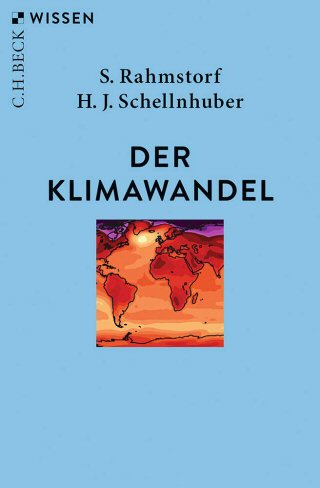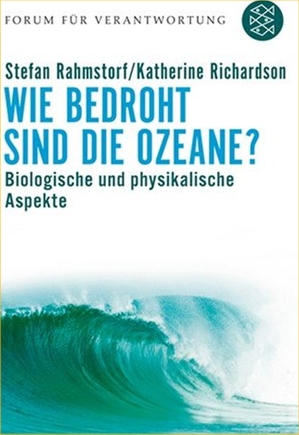In der Folge arbeitete er als Wissenschaftler am New Zealand Oceanographic Institute, am Institut für Meereskunde in Kiel und seit 1996 am Potsdam-Institut für Klimafolgenforschung. Dort erforscht er vor allem die Rolle der Meere bei Klimaänderungen. 1999 wurde er von der amerikanischen McDonnell-Stiftung mit einem Förderpreis in Höhe von einer Million Dollar ausgezeichnet. Seit 2000 lehrt er als Professor im Fach Physik der Ozeane an der Universität Potsdam. Rahmstorf diente von 2004-2013 im Wissenschaftlichen Beirat Globale Umweltveränderungen (WBGU) und ist Mitglied in der Academia Europaea. Er war zudem einer der Leitautoren des 4. IPCC-Berichts. 2007 wurde er zum Honorary Fellow der University of Wales ernannt, 2010 zum Fellow der American Geophysical Union. Seit 2012 gehört er dem wissenschaftlichen Beirat von National Geographic Deutschland an. 2017 erhielt er - als erster Forscher außerhalb der USA - den Climate Communication Prize der American Geophysical Union, 2019 den ZEIT Wissen Preis „Mut zur Nachhaltigkeit“, und 2022 den Stephen H. Schneider Award for Outstanding Climate Science Communication. 2024 wurde er von der European Geosciences Union mit der Alfred Wegener Medal ausgezeichnet, der höchsten Auszeichnung für Forschung im Bereich Atmosphäre/Ozean/Hydrologie. Rahmstorf hat über 130 Fachpublikationen veröffentlicht, davon über 40 in den führenden Journalen von Nature, Science und PNAS. Bücher: Der Klimawandel (2006, zusammen mit Hans-Joachim Schellnhuber), Wie bedroht sind die Ozeane (2007, gemeinsam mit Katherine Richardson), The Climate Crisis (2010, mit David Archer) und Wolken, Wind & Wetter (2011). |
After this he worked as a scientist at the New Zealand Oceanographic Institute, at the Institute of Marine Science in Kiel and since 1996 at the Potsdam Institute for Climate Impact Research. His work there focuses on the role of the oceans in climate change. In 1999 Rahmstorf was awarded the $ 1 million Centennial Fellowship Award of the US-based James S. McDonnell foundation. Since 2000 he teaches Physics of the Oceans as a professor at Potsdam University. Rahmstorf is a member of the Academia Europaea and served from 2004-2013 in the German Advisory Council on Global Change (WBGU). He was also one of the lead authors of the 4th Assessment Report of the IPCC. In 2007 he became an Honorary Fellow of the University of Wales and in 2010 a Fellow of the American Geophysical Union. In 2017 he was the first scientist outside the US to be awarded the Climate Communication Prize of the American Geophysical Union, and 2022 he received the Stephen H. Schneider Award for Outstanding Climate Science Communication. 2024 the European Geosciences Union awarded him the Alfred Wegener Medal, its most prestigious research award in the area atmosphere/ocean/hydrology. He has published over 130 scientific papers (over 40 of which in the leading Nature and Science journals and PNAS) and co-authored four books. Available in English is Our Threatened Oceans (2009, with Katherine Richardson) and The Climate Crisis (2010, with David Archer). |













